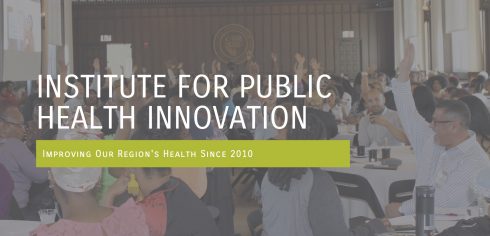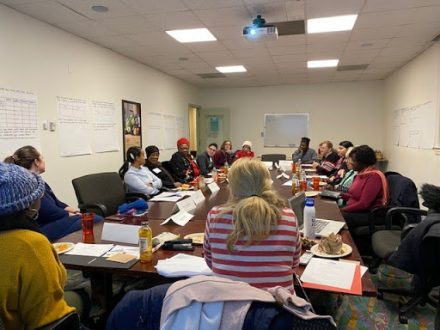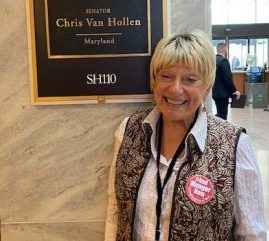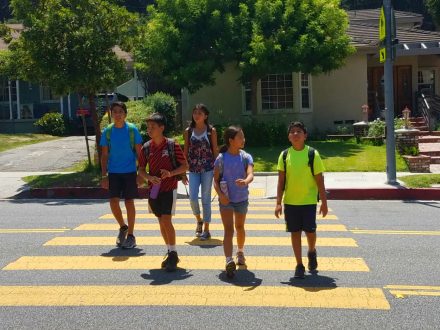Release Date: April 01, 2021
The Food Equity Council’s COVID-19 Food Assistance Response in Prince George’s County, Maryland: A One-Year Update
It’s been one year since Prince George’s County saw its first COVID-19 case. Since then, over 79,000 Prince Georgian’s have been infected and over 1,300 have died.
As we mark this somber occasion, the Prince George’s County Food Equity Council (FEC) is looking back on both the health and economic hardship that impacted the county as well as new opportunities that surfaced as members of the FEC stepped up to lead the county’s COVID-19 food security response.
This past year, the FEC saw existing social, health, and economic inequities unearthed and underscored. Prince George’s County, a majority Black county, experienced the highest death rates in Maryland from complications related to COVID-19. Food insecurity, particularly among vulnerable populations, skyrocketed by 20 percent leaving over 150,000 residents food insecure. Unemployment rose as businesses shuttered and families struggled to keep food on the table as school meal services stalled. These disruptions were a shock to our county’s systems, and agencies were unprepared for the social service demands our county residents required.
Seeing this need, last March, the FEC pivoted our work to coordinate the diverse partners and agencies working to address emergency food assistance relief and response. Over the past year, the FEC has:
- Created and launched the county’s only comprehensive online food assistance directory in English and Spanish, which has received over 120,000 hits since it launched a year ago;
- Provided resident food navigation services including connecting residents to food assistance providers and 211 staff;
- Launched the county’s first food recovery platform to reduce food waste and increase food donations to food assistance providers and pantries;
- Secured funding to purchase three refrigerated trailers to increase cold storage capacity for food assistance providers throughout the county;
- Co-Hosted 20 virtual convenings for over 70 food assistance providers, non-profit partners, and County agencies and leadership in partnership with the Department of Social Services;
- Coordinated with our County Executive’s office, county agencies, regional food councils, and the philanthropic community to ensure we are taking advantage of resources available and implementing promising practices and that there is widespread awareness of the food access needs of residents;
- Provided direct food donation coordination to partners resulting in over 10,000 daily prepared meals delivered to residents in need at the peak of the pandemic;
- Provided County Council members and the County’s Library System with resources to share with their clients and constituents;
- Coordinated with food businesses such as regional food hubs, restaurants, farmers markets, and growers to connect them to market opportunities that address both their needs and the needs of food-insecure residents; and
- Provided educational resources and advocacy support for food businesses, growers, farmers markets, and restaurants.
As vaccines become more widely available and infection rates slow, there is much cause for celebration. However, at the same time, we know that the food insecurity crisis is far from over. Over the course of the next year, the FEC remains committed to continuing our work to address the food assistance response and support residents and families in need through coordinated resources and information sharing. In addition, the FEC is actively working with the County’s Food Security Task Force to develop recommendations to increase food security and build a more resilient and crisis-ready food system.
We extend our gratitude to the many partners that have and continue to support our work. As a volunteer-based council incubated within the Institute for Public Health Innovation, a 501(c)(3) charitable organization, the FEC depends on the generous support of community members and organizations. If you are able to support us with a contribution of any size, please donate here.
For more information on the Prince George’s Food Equity Council and to find out how to provide support, contact Sydney Daigle, [email protected].





